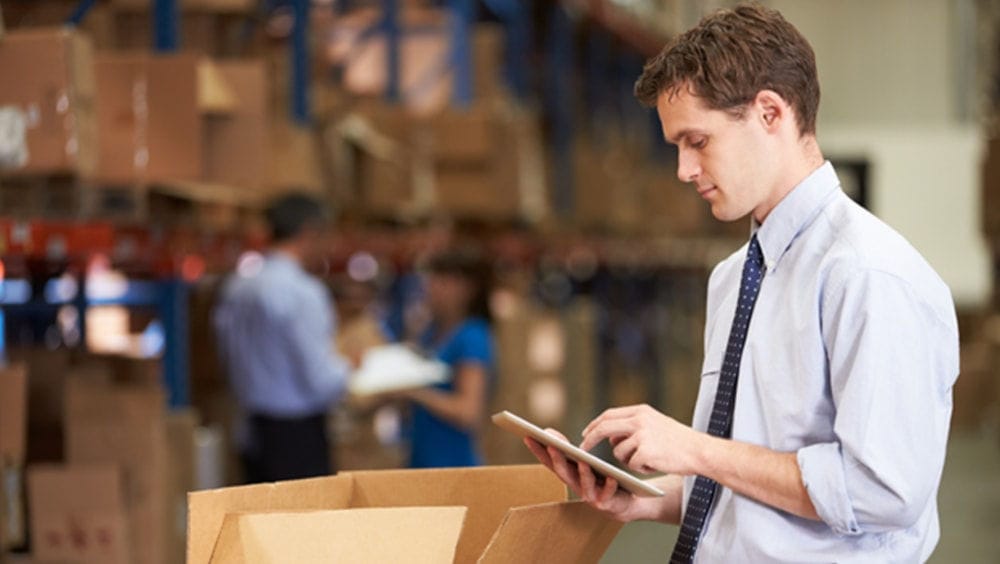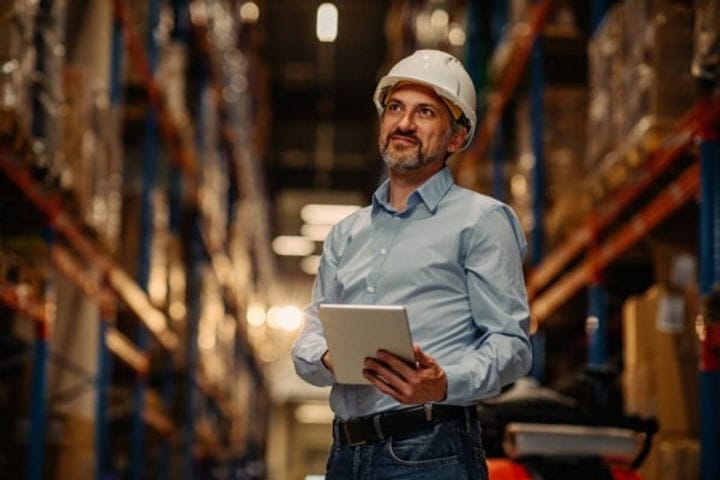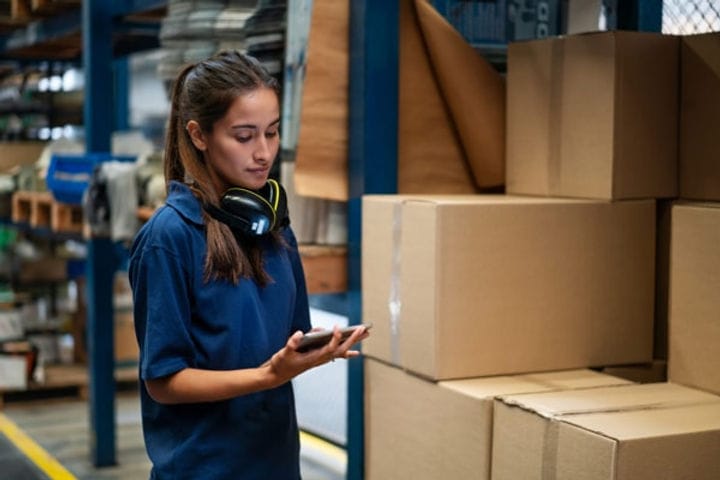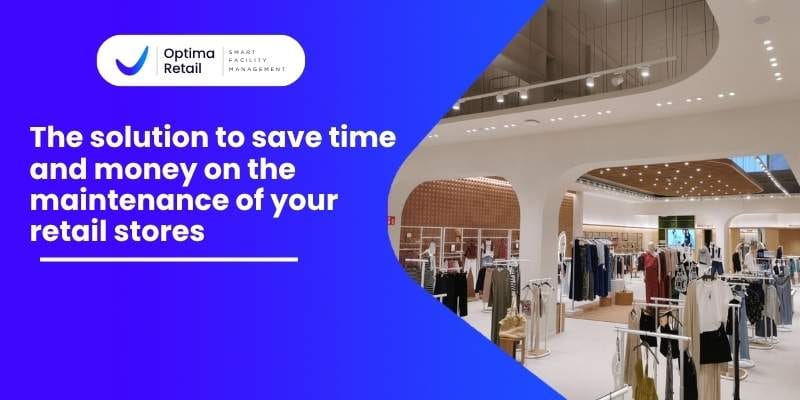
Si eres un administrador del sector minorista, sabes (o deberías saber) que una gestión logística en el retail vigorosa es una base importante en el desarrollo de tu negocio. La mejora de este proceso puede tener un impacto positivo en los costes de producción, el precio final de tus productos, los niveles de venta diarios e incluso la fidelidad de los clientes.
En Optima Retail, te ayudamos para que puedas ahorrar en costes de transporte, gestionar tus mercancías en el almacén para que no se dañen, pierdan o roben, y entregarlas con rapidez y precisión cuando tu público objetivo las necesite, tu rentabilidad mejorará.
Una de las ventajas que tiene la logística es que, mediante el uso de la tecnología, la logística del comercio minorista puede ser más eficiente hoy en día.
Las aplicaciones de distribución y la automatización de procesos están revolucionando el proceso logístico. Y como resultado, las demandas y expectativas de los consumidores a la hora de comprar productos también están cambiando.
Tenemos que ser conscientes de estos cambios. Esto se debe a que las empresas más avanzadas están adaptando sus procesos logísticos a la velocidad, precisión y flexibilidad que requiere un mercado cada vez más dominado por los millennials.
Pasos para tener una gestión eficiente de la logística en el retail

Esto es exactamente lo que los minoristas deberían procurar: ofrecer una experiencia de compra rápida, atractiva y agradable. Pero si este es el caso, ¿qué medidas puedes tomar como empresario minorista para gestionar tu logística de forma eficiente? Hay al menos cinco pasos clave que hay que tener en cuenta:
1- Comprender la cadena de suministroen retail
Beetrack, un proveedor de soluciones digitales de envío, ofrece algunas ideas. En primer lugar, se recomienda que identifiques a los miembros de tu cadena de suministro: proveedores, distribuidores y oficinas de venta. Tener a estos tres actores trabajando en armonía es fundamental para el éxito de la logística.
La empresa también subraya la importancia de entender “qué elementos buscan los consumidores en un servicio de entrega hoy en día, por ejemplo, la flexibilidad de la entrega, los costes de entrega y los tiempos de espera”. Son pasos esenciales para reducir los costes, mejorar la gestión y aumentar la satisfacción de los clientes.
Como propietario de un comercio minorista, debes seguir ciertas tendencias, en función de tu línea de negocio, ya sea productor o importador. En otras palabras: Tienes que estar atento al mercado y renovar constantemente la cadena logística para satisfacer a tus clientes.
2- Contratos con proveedores garantizados
Una buena relación con los proveedores es esencial. Como minorista, es importante elegir un proveedor en función de cuatro factores: capacidad de producción, logística de transporte, imagen, reputación y nivel de ventas y precios.
Los minoristas que importan catálogos de productos también deben utilizar los mismos criterios para seleccionar al proveedor ideal.
3- Automatizar el almacenamiento
El almacenamiento de tus productos es fundamental para tus procesos logísticos. Los almacenes mal gestionados no sólo pueden acarrear problemas en las auditorías contables y administrativas.
También puede dar lugar a errores en las entregas finales a los clientes, al llamado “infierno de las hormigas” (donde la pérdida de un pequeño artículo puede tener un efecto económico considerable al final) e incluso a daños en la propia mercancía.
La tendencia en la logística en el retail minorista es utilizar un sistema de gestión de almacenes (SGA) automatizado.
Esto facilita la gestión de la cadena de suministro, las rutas y los envíos. También tiene la ventaja de saber dónde están los productos en el almacén y las cantidades disponibles, optimizando el uso del terreno y reduciendo el tiempo de transporte de los productos.
4- Cuida el stock y el embalaje

Para diferenciar nuestros productos, prestamos atención a cada detalle. Dos de los más importantes son el stock en tienda, que se mantiene siempre actualizado y el tiempo que tardan los productos en llegar a los consumidores en empaques de alta calidad.
En lo que respecta al stock, una gestión adecuada del mismo evita que los clientes abandonen una compra por no encontrar el producto que buscan.
Los pequeños y medianos comerciantes pueden beneficiarse de un sistema de “punto de venta”, que automatiza la gestión de los productos en la tienda.
Mientras tanto, el empaque de los productos ya no es solo un contenedor reciclable: con la proliferación del comercio electrónico, como empresarios minoristas tenemos que reconocer que el empaque es la primera experiencia de una marca.
Una buena primera impresión es un elemento diferenciador clave para las marcas y los minoristas, ya que ofrece un toque único y personal que a menudo no se aprovecha.
5- Transporte eficiente
En general, la mayoría de los minoristas siguen contratando a pequeños proveedores que sólo se encargan de una parte del proceso, como el transporte, el almacenamiento y el despacho de aduanas.
Mientras esta sea la tendencia, debemos confiar en la tecnología para mejorar nuestros sistemas de transporte: existen aplicaciones que simplifican el proceso de envío de mercancías desde los centros de distribución.
Este servicio ha conseguido reducir en un 15% los plazos de entrega de las empresas mundiales que lo utilizan actualmente.
Asimismo, existen otras aplicaciones que están a disposición de los empresarios que buscan conectar a proveedores y usuarios de transporte de mercancías para facilitar la gestión de la cadena logística. Una aplicación con estas características puede ser de gran valor.
En Optima Retail, nos comprometemos a ofrecerte siempre la mejor solución. Nuestro Departamento de Calidad trabaja continuamente para mejorar nuestro servicio. ¿Necesitas asistencia? Estamos aquí para ti.


